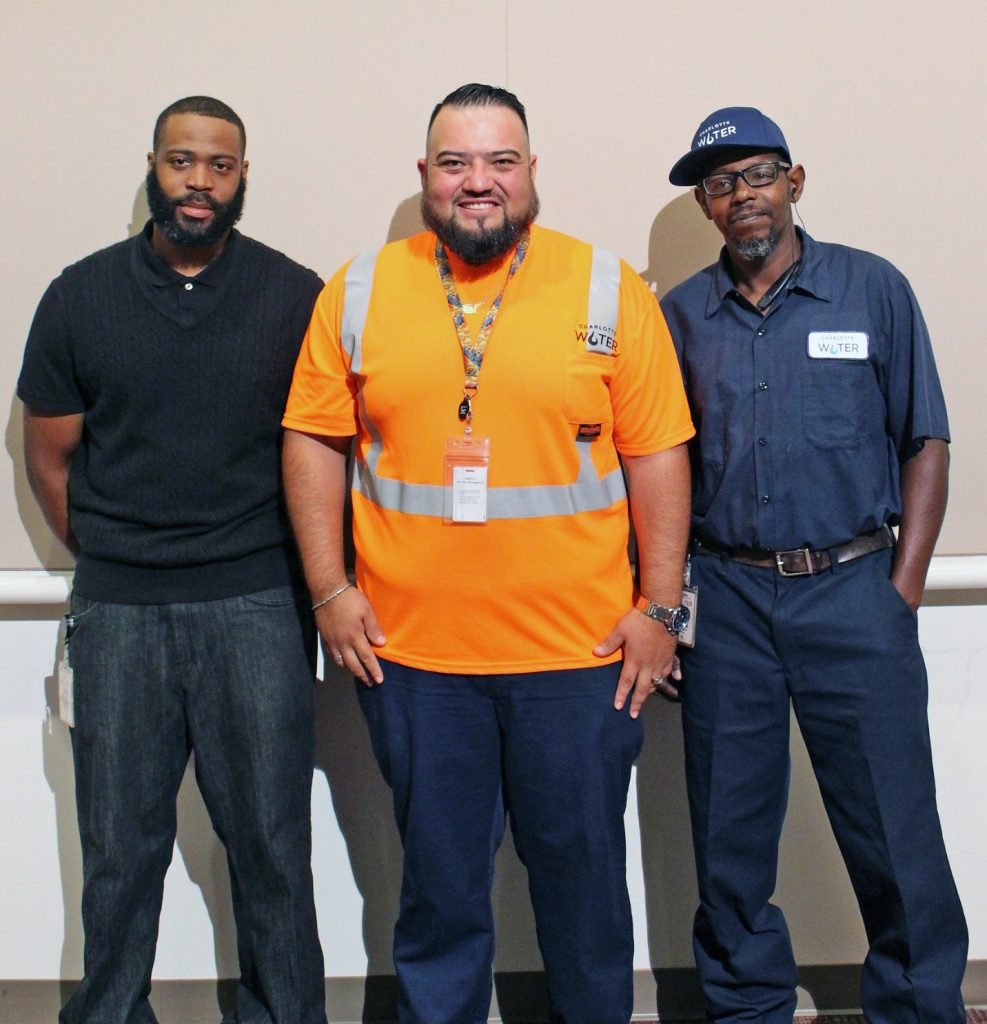North Carolina jobs program fills vacancies, forges careers
Charlotte (N.C.) Water has a fresh approach to finding new utility technicians. That approach is a yearlong apprenticeship program offered by the utility trains recruits in a variety of skills — and even guarantees them a job upon completion.
The program was created to tackle a high turnover and vacancy rate for the city’s utility technician position, which involves water and sewer maintenance. But it’s not just intended to be a quick fix for vacancies, said Charlotte Water Workforce Development Manager Carolyn Ross.
“Each year, [recruits] obtain more skills, with pay increases,” Ross said. “They can move on to higher positions. There is great room for growth.”
More than just a job

Program graduate and utility technician Edi Cardoza used to work in HVAC. But to him, that was just a job.
“I’m looking forward to advancing, becoming a crew chief or operator,” he said. “This is a real chance to get a career, not just a job.”
Ross said the program is meant to do just that. The utility hopes to attract talent that will stay with Charlotte Water long-term. Program staff also want to offer opportunities to those who may not have had them.
“Many apprentices that come from the community have had issues finding a job,” said Charlotte Water Operations Chief Jackie Jarrell. “Some have been incarcerated or had trouble finishing education.”
Lessons inside and outside the utility
Cardoza said the program, which requires participants to log 2,000 hours in a year, is not for everyone. The hours can be challenging, and much of the work is in hot, cramped conditions. But he said he learned valuable skills – not all of them technical.
“They taught us how to deal with people,” he said. “You get to learn the physical work, but also the people skills. For me, that’s my favorite part.”
The program teaches finances, communication, receiving feedback, time management, navigating city policies, presentations and public speaking, in addition to the extensive on-the-job technical training. Ross said communication was one of the biggest challenges.
“[We help them] let us know what their challenges and career goals are,” she said. “Many of these folks have never been encouraged to speak about that sort of thing.”
Ross said she encourages anyone interesting in starting an apprenticeship program to do it. For them, it has been rewarding – and it all starts with a single question.
“Look at your organization and determine where the gaps are. Where are the vacancies and how can we fill them?”
— Will Fowler, WEF Highlights
